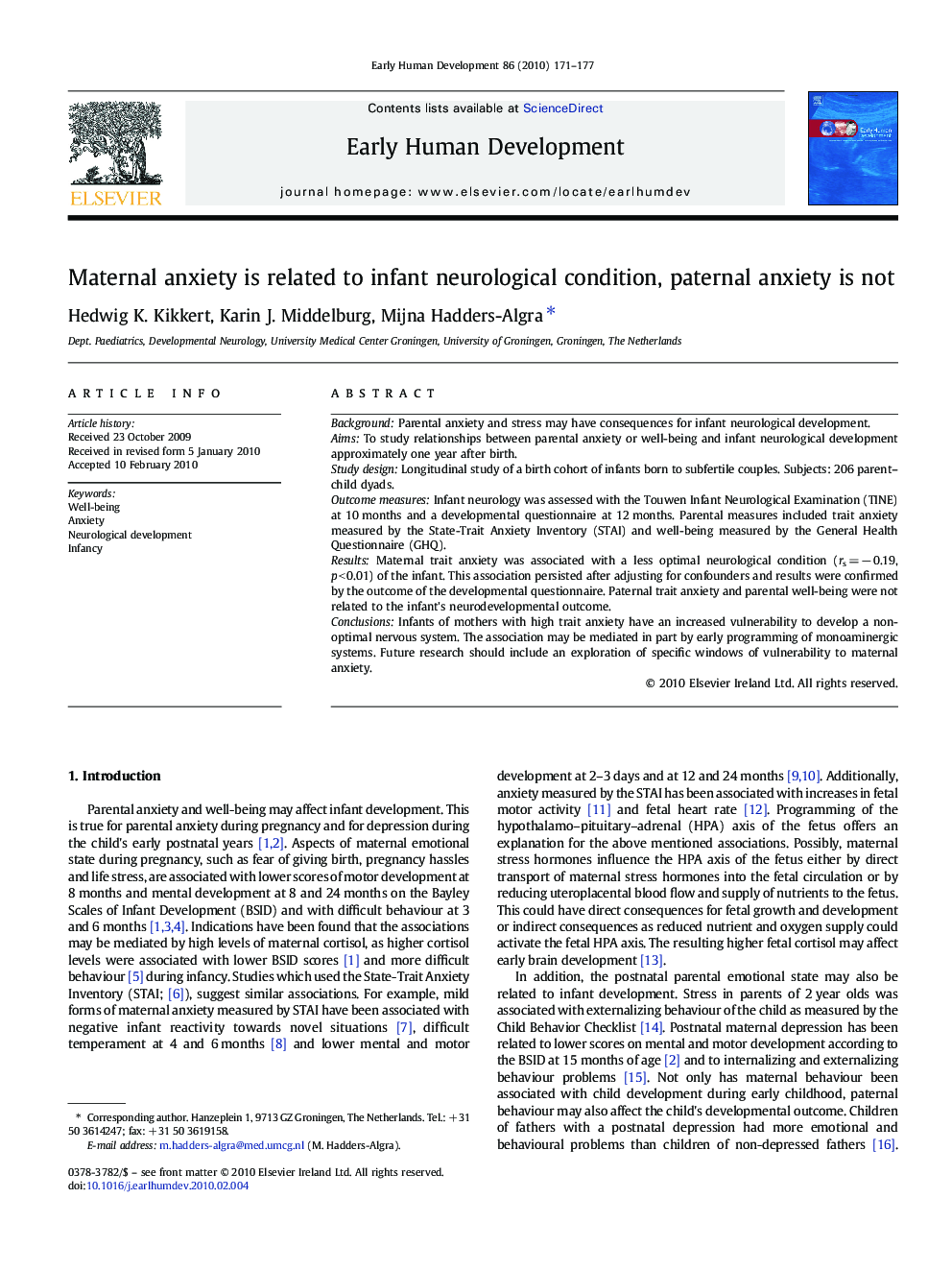| Article ID | Journal | Published Year | Pages | File Type |
|---|---|---|---|---|
| 3917646 | Early Human Development | 2010 | 7 Pages |
BackgroundParental anxiety and stress may have consequences for infant neurological development.AimsTo study relationships between parental anxiety or well-being and infant neurological development approximately one year after birth.Study designLongitudinal study of a birth cohort of infants born to subfertile couples. Subjects: 206 parent–child dyads.Outcome measuresInfant neurology was assessed with the Touwen Infant Neurological Examination (TINE) at 10 months and a developmental questionnaire at 12 months. Parental measures included trait anxiety measured by the State-Trait Anxiety Inventory (STAI) and well-being measured by the General Health Questionnaire (GHQ).ResultsMaternal trait anxiety was associated with a less optimal neurological condition (rs = − 0.19, p < 0.01) of the infant. This association persisted after adjusting for confounders and results were confirmed by the outcome of the developmental questionnaire. Paternal trait anxiety and parental well-being were not related to the infant's neurodevelopmental outcome.ConclusionsInfants of mothers with high trait anxiety have an increased vulnerability to develop a non-optimal nervous system. The association may be mediated in part by early programming of monoaminergic systems. Future research should include an exploration of specific windows of vulnerability to maternal anxiety.
